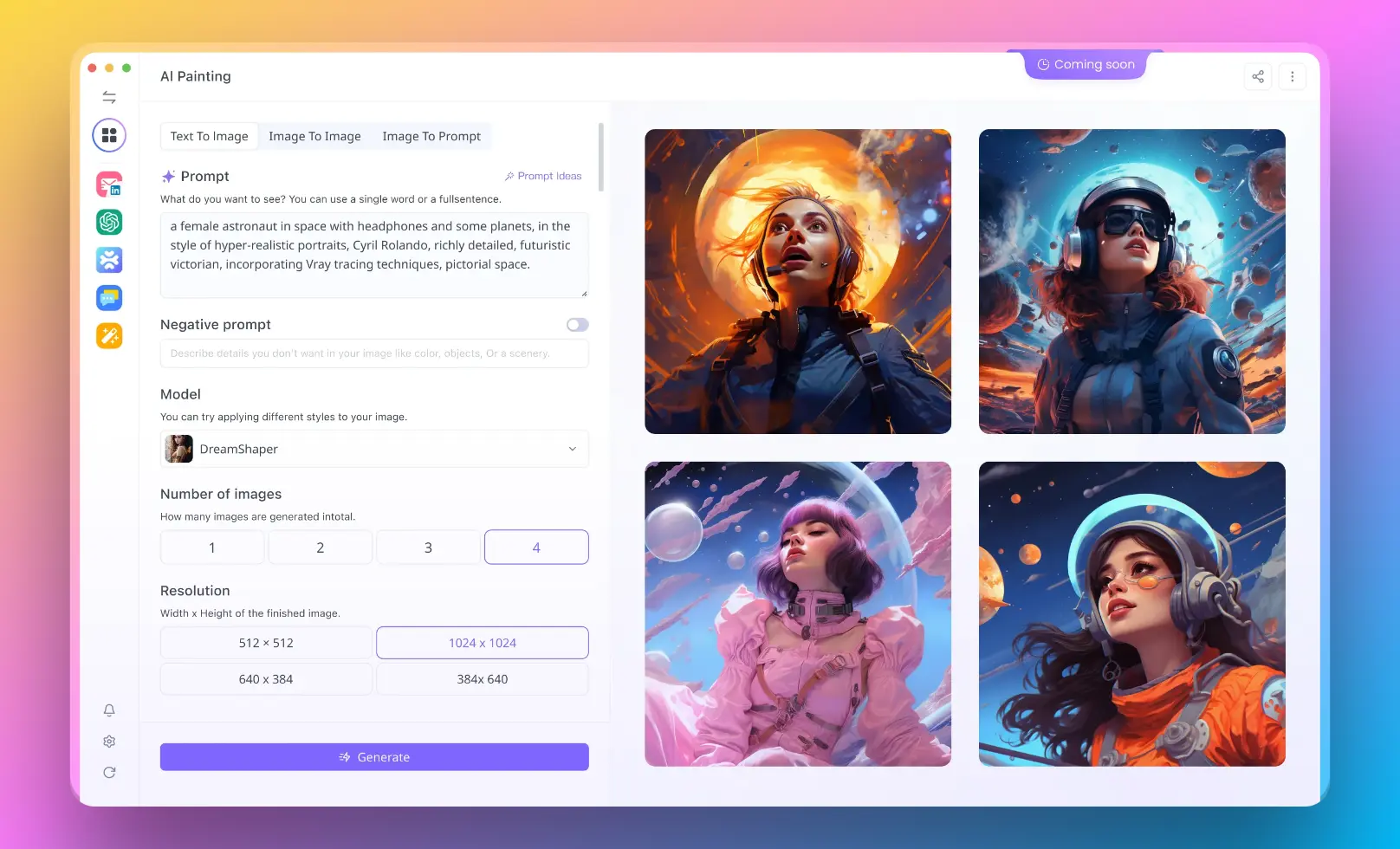Then, You cannot miss out Anakin AI!
Anakin AI is an all-in-one platform for all your workflow automation, create powerful AI App with an easy-to-use No Code App Builder, with Deepseek, OpenAI's o3-mini-high, Claude 3.7 Sonnet, FLUX, Minimax Video, Hunyuan...
Build Your Dream AI App within minutes, not weeks with Anakin AI!

The landscape of artificial intelligence is rapidly evolving, with large language models (LLMs) becoming increasingly sophisticated in their ability to understand and generate human-like text. However, their effectiveness has often been limited by their ability to access and interact with external data sources in a consistent and secure manner. This is where the Model Context Protocol (MCP) comes into play, and Claude MCP Server stands at the forefront of this technological revolution.
Check out HiMCP, where you can find any MCP Server with ease!
Understanding Claude MCP Server Technology
Claude MCP Server represents a groundbreaking approach to how AI models like Claude interact with external tools, data sources, and systems. Developed by Anthropic, the Model Context Protocol (MCP) serves as a standardized interface that enables large language models to request and receive context from various data sources seamlessly.
Think of Claude MCP Server as a USB-C port for AI applications—it establishes a universal connector that allows Claude and other compatible AI systems to plug into virtually any data source or tool following the same protocol standards. This standardization addresses the previous fragmentation in how AI systems accessed external information.
How Claude MCP Server Functions
At its core, Claude MCP Server acts as an intermediary between Claude AI and external systems. It follows a request-response pattern where the AI model can request specific types of information or actions, and the server responds with the appropriate data or confirmation of the requested action.
The Claude MCP Server protocol defines:
- How requests are structured and validated
- Authentication and security mechanisms
- Response formatting for consistent parsing
- Error handling protocols
- Transport methods (including stdio, SSE, and WebSockets)
Benefits of Claude MCP Server Implementation
The implementation of Claude MCP Server brings numerous advantages to AI integration efforts across organizations and individual users alike.
Claude MCP Server for Enterprise Solutions
For enterprises, Claude MCP Server offers a transformative way to connect their information silos with powerful AI capabilities:
- Secure Access Control: Organizations can define precisely what data Claude can access and what operations it can perform.
- Integration with Legacy Systems: Claude MCP Server allows AI to interface with existing enterprise systems without massive reengineering efforts.
- Consistent Interaction Patterns: Standardized protocols mean developers can build once and deploy across multiple AI systems.
- Compliance Management: Fine-grained access controls help maintain compliance with data governance policies.
Claude MCP Server for Developers
Developers find Claude MCP Server particularly valuable as it simplifies the creation of AI-enhanced applications:
- Reduced Development Overhead: The standardized protocol eliminates the need to build custom integrations for each data source.
- Tool Reusability: Tools developed for one MCP-compatible AI can be easily used with others.
- Extensibility: Developers can continuously add new capabilities by implementing additional MCP servers.
- Open-Source Ecosystem: A growing repository of MCP servers provides ready-made solutions for common use cases.
Types of Claude MCP Server Applications
The versatility of Claude MCP Server enables a wide range of applications across different domains.
Claude MCP Server for Data Access
One of the primary applications of Claude MCP Server is providing secure access to various data repositories:
- Database Connectivity: Claude MCP Server implementations exist for PostgreSQL, MySQL, MongoDB, and many other database systems, allowing Claude to query and analyze data directly.
- Document Retrieval: MCP servers can connect to document management systems, enabling Claude to search and retrieve information from organizational knowledge bases.
- API Integration: MCP servers act as bridges to external APIs, allowing Claude to access web services, SaaS platforms, and other online resources.
- File System Access: Controlled access to local or networked file systems lets Claude analyze documents, code, and other files while maintaining security boundaries.
Claude MCP Server for Tool Integration
Beyond data access, Claude MCP Server enables AI models to use external tools:
- Code Execution Environments: Secure sandboxes allow Claude to write, test, and execute code to solve problems.
- Web Browsing: MCP servers can provide web browsing capabilities, allowing Claude to search for information and visit websites to gather information.
- Productivity Applications: Integration with tools like calendar systems, email clients, and project management software enables Claude to assist with scheduling, communication, and organization.
- Creative Tools: MCP servers can connect to image generation, audio processing, and other creative software, expanding Claude's capabilities beyond text.
Setting Up a Claude MCP Server
Implementing your own Claude MCP Server is a straightforward process thanks to the open-source tools and documentation available.
Claude MCP Server Installation Requirements
Before setting up a Claude MCP Server, ensure you have:
- A compatible development environment (Node.js for TypeScript servers or Python for Python-based implementations)
- Basic understanding of the systems you want to connect Claude to
- Claude Desktop application or another MCP-compatible client
- Appropriate API credentials for any external services you plan to integrate
Claude MCP Server Configuration Steps
- Choose Your Implementation: Select from existing MCP server implementations or create your own based on your needs.
- Install Dependencies: Use package managers like npm, pip, or uvx to install the required packages.
- Configure Access Controls: Define what resources or operations the server will expose to Claude.
- Test the Connection: Ensure your MCP server responds correctly to requests.
- Integrate with Claude Desktop: Configure the Claude Desktop application to connect to your MCP server.
Claude MCP Server Security Considerations
Security is a paramount concern when implementing Claude MCP Server, as it potentially provides AI systems access to sensitive data and systems.
Claude MCP Server Access Control
Properly configured access controls are essential for secure MCP implementation:
- Principle of Least Privilege: Only grant access to the specific resources and actions needed for your use case.
- Authentication Mechanisms: Implement robust authentication to ensure only authorized AI models can connect to your MCP server.
- Rate Limiting: Protect against resource exhaustion by implementing appropriate rate limits.
- Audit Logging: Maintain detailed logs of all access and operations for security monitoring and compliance purposes.
Future of Claude MCP Server Technology
The Claude MCP Server ecosystem continues to evolve rapidly, with new developments expanding its capabilities and applications.
Claude MCP Server Innovation Trends
Several trends are shaping the future direction of MCP technology:
- Cross-Model Compatibility: Expansion beyond Claude to support other AI models from different providers.
- Enhanced Privacy Features: Development of privacy-preserving techniques that allow AI to work with sensitive data without exposing it.
- Federated MCP Networks: Creation of interconnected MCP servers that can collaborate to solve complex problems.
- Domain-Specific MCP Solutions: Specialized MCP servers optimized for particular industries like healthcare, finance, and legal.
Claude MCP Server Community Growth
The open nature of the MCP protocol has fostered a vibrant community:
- Growing Repository of Servers: The community has contributed hundreds of MCP server implementations for various tools and data sources.
- Development Frameworks: Specialized frameworks have emerged to simplify the creation of new MCP servers.
- Best Practice Standards: Community-driven standards are evolving to ensure consistency and security across implementations.
- Integration with Existing Ecosystems: MCP is increasingly being integrated with popular development platforms and tools.
Conclusion
Claude MCP Server represents a significant advancement in how AI systems interact with external data and tools. By establishing a standardized protocol for these interactions, Anthropic has created an ecosystem that enhances Claude's capabilities while maintaining security and control.
Organizations adopting Claude MCP Server gain the ability to securely integrate their data and tools with powerful AI capabilities, while developers benefit from simplified integration patterns and a growing ecosystem of reusable components. As the technology matures, we can expect to see even more innovative applications that combine Claude's intelligence with specialized tools and data sources.
Whether you're looking to enhance your organization's knowledge management, create intelligent automation workflows, or build cutting-edge AI applications, Claude MCP Server provides a robust foundation for connecting Claude's capabilities with the tools and data that power your business.



